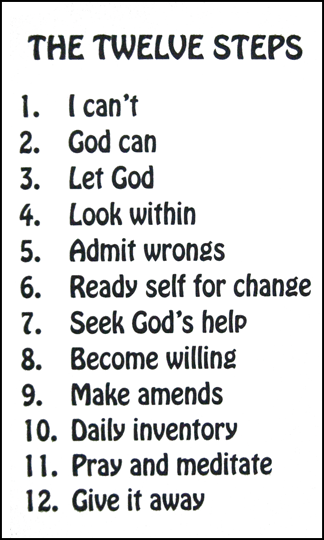As a person with a strong Wounded Healer archetype, this particularly resounds with me--I was very deeply wounded, from lots of things, but particularly after my brother's death, I found myself pushing myself to change in an effort to heal these wounds. When the process was more or less complete, I found myself a different person--and, as the description mentions, I found what I believe to be a divinely-provided path of service.The Wounded Healer is initiated into the art of healing through some form of personal hardship--anything from an actual physical injury or illness to the loss of all one's earthly possessions. Regardless of the shape of the wound, the challenge inherent in this initiation process is that one is unable to turn to others for help beyond a certain degree of support. Only the initiate can ultimately heal the wound; if it is an illness or accident, it will frequently be one for which there is no conventional cure. The Wounded Healer archetype emerges in your psyche with the demand that you push yourself to a level of inner effort that becomes more a process of transformation than an attempt to heal an illness. If you have successfully completed the initiation, you inevitably experience an exceptional healing, and a path of service seems to be divinely provided shortly after the initiation is complete.
The mythical Chiron is the prototypical Wounded Healer.
Today I want to write about transformative healing.
What is Transformative Healing?
Transformative healing is inner-directed change that transforms the soul into something that no longer needs the illness it was previously suffering from. As an example, an addict struggling with addiction who experiences transformative healing would feel inwardly directed to humble him- or herself, to the point of finally offering the addiction up to their Higher Power and becoming a changed, humbler person. After that change is complete, the former addict is renewed, redeemed, no longer needing the trial of their addiction. The addiction has served its purpose and the former addict no longer requires healing--because they themselves have changed, from the inside out.
 |
| Metamorphosis. |
Actually going through this transformation was almost unbearably painful on a spiritual level; I had always really looked down on the yin/feminine aspect and now I knew I had to not just accept it in myself, but make it the primary aspect of myself, while downplaying my yang side. (Sidenote: this was all a God-directed process. I assure you there is no possible way I ever would have decided to change my soul like that without His explicit, continual pressure to do so!!)
But when I mostly completed the process--I mean, I still have a ways to go--but when I overcame the biggest hurdle, all of a sudden, I was a different person. I had my change of heart. I literally think differently now than I ever have thought before. My brain is different. I feel and think like a totally different person. And now that I am a transformed person, a lot of the trials and wounds that used to affect me deeply, really don't. Even new trials don't affect me in the same way. I still have a long ways to go, and I'm sure more transformations will come with time, but in the meantime, I know what it is to have a small taste of transformative healing.
Transformative healing is the spiritual and sometimes even physical healing that comes with a change of heart.
How To Experience Transformational Healing
Outside people can't really help transformative healing. The process is inwardly directed. For me, while God prompted the journey with lots--LOTS--of warnings and revelations and pressure, it was my personal choice to agree to start the journey with Him. The stuff I had to go through in order to transform was stuff that no one else could really help me with. If you are on a transformational healing journey, there's really not a lot other people can do for you. It all has to come from within.
That said, it all starts with a choice. A choice to change. But more than just a choice: a commitment. A true commitment to see the change through, no matter what it takes.
 |
| A change of heart. |
The first step to experiencing the transformational change of heart is prayer--turning to God to discover the first step in the plan He has for your life. To see what it is in your heart that needs to change.
But the thing is, that first step never ends. Part of the transformation in transformative healing is that from that point on, you are led by your Higher Power through the transformation process. Transformational healing comes when you bring your will into alignment with God's, instead of futilely wishing His will would be brought into alignment with yours.
Healing Transformation and the Twelve Steps
Healing transformation of any kind seems to me very reminiscent of the twelve steps--as in the AA twelve steps. Here are AA's twelve steps:
 |
| An abbreviated version. |
- We admitted we were powerless over alcohol—that our lives had become unmanageable.
- Came to believe that a power greater than ourselves could restore us to sanity.
- Made a decision to turn our will and our lives over to the care of God as we understood Him.
- Made a searching and fearless moral inventory of ourselves.
- Admitted to God, to ourselves, and to another human being the exact nature of our wrongs.
- Were entirely ready to have God remove all these defects of character.
- Humbly asked Him to remove our shortcomings.
- Made a list of all persons we had harmed, and became willing to make amends to them all.
- Made direct amends to such people wherever possible, except when to do so would injure them or others.
- Continued to take personal inventory, and when we were wrong, promptly admitted it.
- Sought through prayer and meditation to improve our conscious contact with God as we understood Him, praying only for knowledge of His will for us and the power to carry that out.
- Having had a spiritual awakening as the result of these steps, we tried to carry this message to alcoholics, and to practice these principles in all our affairs.
Aspects of Transformation
Four things really stand out to me about the transformational healing process. They are:
1) The need for humility. Humility to take a step back and hand over control over your own life to a higher power. Humility to sit back and agree when all your relevant faults are brought before your eyes because it's time for them to change.
2) Work. Sometimes the changes asked of us require real work, real changes in the things we do, watch, say, and think on a day-to-day basis. Transformation can involve some serious change, and sometimes it requires a lot of effort.
3) Pain. The pain you feel as the things you liked or valued about yourself--your pride, selfishness, addictions, etc--are uprooted before your eyes.
 |
| Our life progression is like climbing stairs. Except in the dark. |
Not that my process is by any means complete, but one of my many processes has kind of come to a sort of completion--I know for a 100% fact that I am a different pers
on now than I was a year ago, for example. In all areas of my life.
Basically, if life and progress are like a staircase, and most of the time I had one foot on the next step but was afraid to bring the other foot up also, I feel like I have successfully climbed a single stair. There are plenty more stairs to go, but one of them is behind me at last! Whoohoo.
Conclusion
People are wounded for many reasons. People can be cruel. We all wound each other, both intentionally and unintentionally. But these wounds can all serve our highest good, as we use them to motivate ourselves to turn our hearts over to God or our Higher Power for transformation. As soon as our wounds no longer serve us, they leave us. By engaging in the meaningful act of turning over our wills to God, we take advantage of the wisdom our wounds have to offer us, and are blessed with spiritual and sometimes even physical healing.


No comments:
Post a Comment